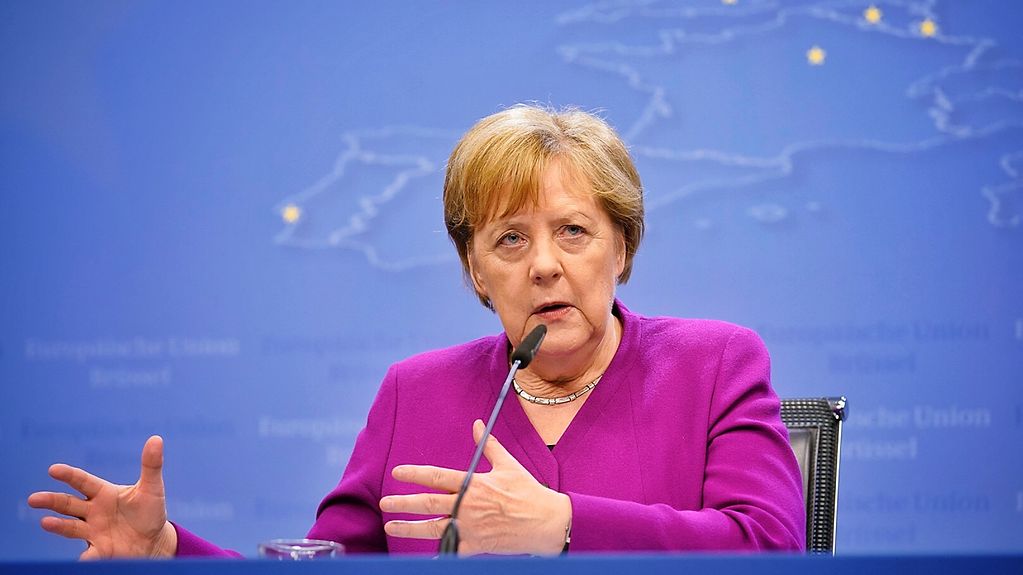Special EU summit following the European elections
In Brussels, Chancellor Angela Merkel has called for a consensus to be reached on the top level posts now to be filled in the EU institutions. "Each one of us must demonstrate tolerance and be willing to compromise," she said. The EU leaders met at a special summit in order to discuss the outcome of the European elections and filling the top posts within the EU institutions.

The EU must retain its ability to act, stressed Angela Merkel with a view to filling the post of the European Commission President
Photo: Bundesregierung/Kugler
By the next meeting of the European Council on 20 and 21 June, the heads of state and government need to agree on a candidate to propose as the next President of the European Commission, explained the Chancellor following their deliberations on Tuesday evening. European Council President Donald Tusk is to mediate in talks with the European Parliament and the EU heads of state and government.
"We need to work together with respect"
"We have said that it is important that appointments to the top posts within the future European Union be coupled with principles and visions," said Angela Merkel. That is why the discussion about major projects is crucially important. "I think that we can find a good way forwards across the party family lines."
It is especially important to adopt a medium-term financial perspective as soon as possible, stressed the Chancellor. That is why it is important that the EU retain its ability to act. "We must be careful to ensure that we don’t open up wounds on the part of those that perhaps cannot agree, such that we are unable to adopt the medium-term financial perspective, which must be adopted unanimously. That means our ability to work together with respect today, will determine whether or not we are actually able to act tomorrow."
It is an important message for the European Council, that the majority in the European Parliament has signalled its support for the principle of the Spitzenkandidat or lead candidate - "even if not all leaders in the European Council are convinced that this principle is right".
At the end of the year more posts will have to be filled: the President of the European Council and the High Representative of the Union for Foreign Affairs and Security Policy. The new appointees are to be nominated at the European Council meeting on 20 and 21 June.
How is the new European Commission President selected?
The procedure for appointing the new President of the European Commission is laid out in Article 17 (7) of the Treaty on European Union.
It stipulates that the European Council propose to the European Council a candidate for the post of President of the European Commission. The candidate must be approved by a qualified majority of the members of the European Council. The outcome of the elections to the European Parliament must be taken into account.
The European Parliament elects the proposed candidate, who must obtain the majority of MEPs’ votes. With 751 members of the European Parliament, at least 376 must vote in favour of the candidate. If the candidate does not win a majority in the European Parliament, the European Council must propose a new candidate, within one month of the lost vote in the European Parliament.
The European Parliament can elect the new candidate under the same procedure, i.e. with the majority of all MEPs voting for the candidate.